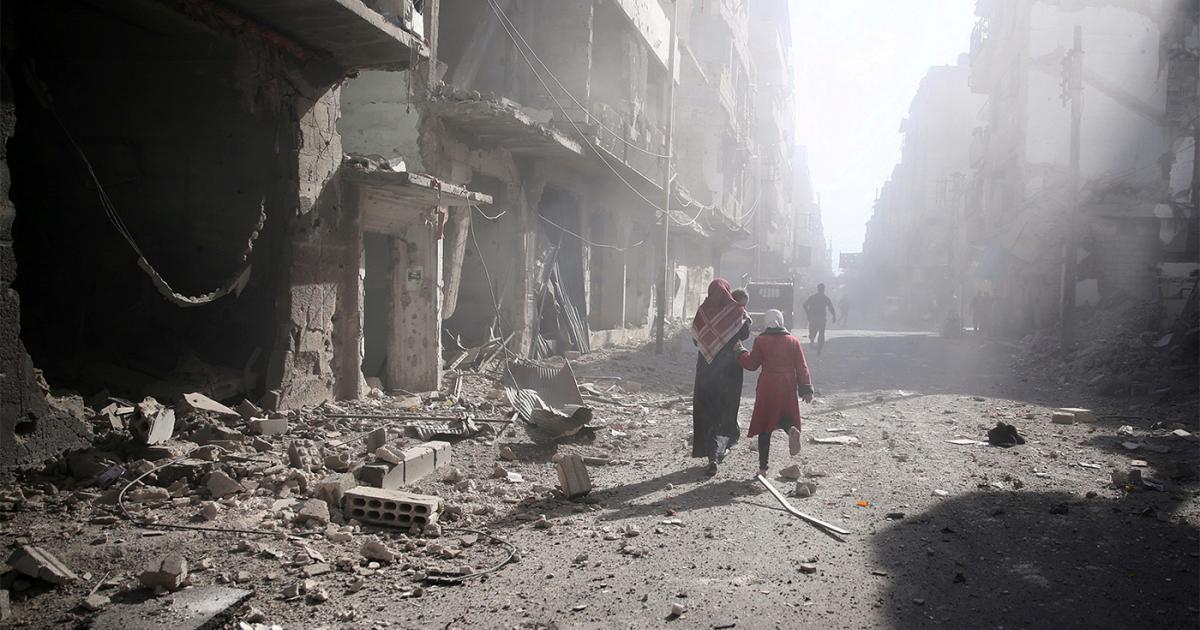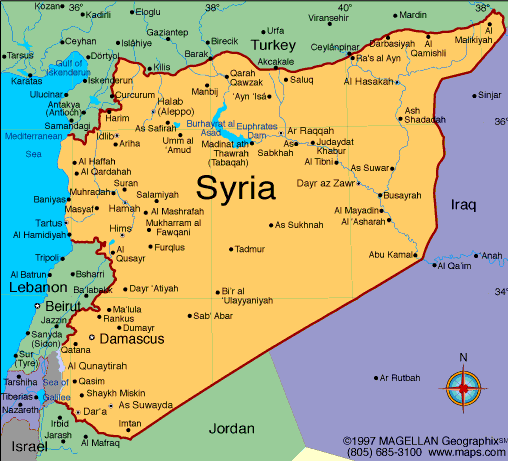Expediting peace in Syria
December 30, 2017 | Expert Insights

The United Nations Special Envoy for Syria, Staffan de Mistura has spoken to the UN Security Council and revealed that the UN will now propose to Syria’s warring parties a timeline for elections.
For the past two years, UN has worked at mediating a peace process in the midst of the Syrian civil war.
Background
Over the span of several centuries, Syria, which was at the forefront of the Islamic Caliphate witnessed multiple invasions and occupations. The Romans to the Crusaders and the Turks have tried to gain control of the region.
In 1946, the modern state of Syria was born when it got its independence from France. A country of fertile plains, high mountains and deserts, it is home to diverse ethnic and religious groups, including Kurds, Armenians, Assyrians, Christians, Druze, Alawite Shia and Arab Sunnis. The majority of Muslim population in Syria is made up of Arab Sunnis.
The Syrian Civil War has been going on since 2011. It began during the Arab Spring protests and due to resentment towards the government of President Bashar al-Assad. The war is being fought by several factions: the Syrian government and its allies, a loose alliance of Sunni Arab rebel groups (including the Free Syrian Army), the majority-Kurdish Syrian Democratic Forces (SDF), Salafi jihadist groups (including al-Nusra Front) and the Islamic State of Iraq and the Levant (ISIL), with a number of countries in the region and beyond being either directly involved, or rendering support to one or another faction.
Relations between Saudi Arabia and Syria have long been strained. They further deteriorated following the civil war. Since then Saudi Arabia has called for the removal of Bashar al-Assad from power multiple times. Saudi Arabia cut off relations with Syria after they decided to close its embassy in Damascus and expel the Syrian ambassador in 2012.
Analysis

The United Nations Special Envoy for Syria, Staffan de Mistura, has been at the center of all efforts to bring the parties to the negotiating table and put an an end to the war. Previous rounds were held between 23rd February to 3rd March 2017; 23rd March to 31 March 2017; 15th May to 19th May 2017 and 10th July to 14th July, 2017. The eight round of negotiations concluded on December 14th, 2017 ended in a stalemate with lack of progress. At the time Mistura stated, “A big missed opportunity, a golden opportunity at the end of this year, when in fact there is a clear indication from many sides that the military operations are coming to a close, the Da'esh [also known as the Islamic State of Iraq and the Levant or ISIL] territory is reduced to close to zero.”
Staffan de Mistura has now notified the UN Security Council that the United Nations will propose to Syria’s warring parties a timeline for elections. He also said that the body will provide guidance on constitutional reform in a bid to revive stalled peace talks.
“The time has come for the U.N. to provide some specific elaborations ... and therefore stimulate a wider conversation,” he said. “The U.N. has provided electoral assistance to a majority of U.N. member states ... so we do have experience. These propositions are advanced in good faith by the U.N. in order to promote fresh thinking in all quarters.”
“I cannot hide my disappointment,” de Mistura said over the failed eighth round.
Meanwhile, Syria's Chief Negotiator, Bashar al-Jaafari, blamed Western countries, Saudi Arabia and the UN for its failure of the latest round of negotiations to end the country's civil war.
Assessment
Our assessment is that main objective of the talk was to get the warring parties to consider the new constitution for the war ravaged country. We believe that the United Nations Special Envoy for Syria has taken the right step in expediting the peace process as millions of lives in Syria are at stake.








Comments